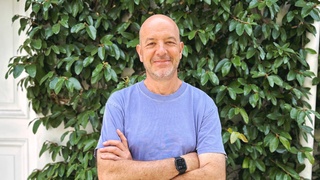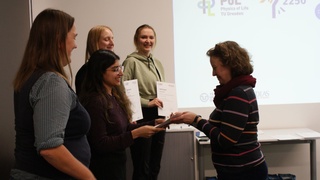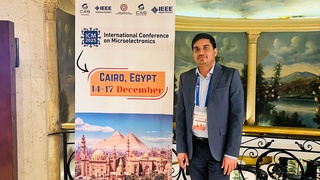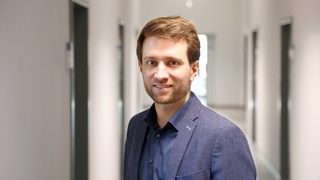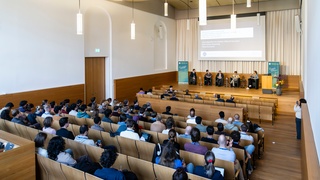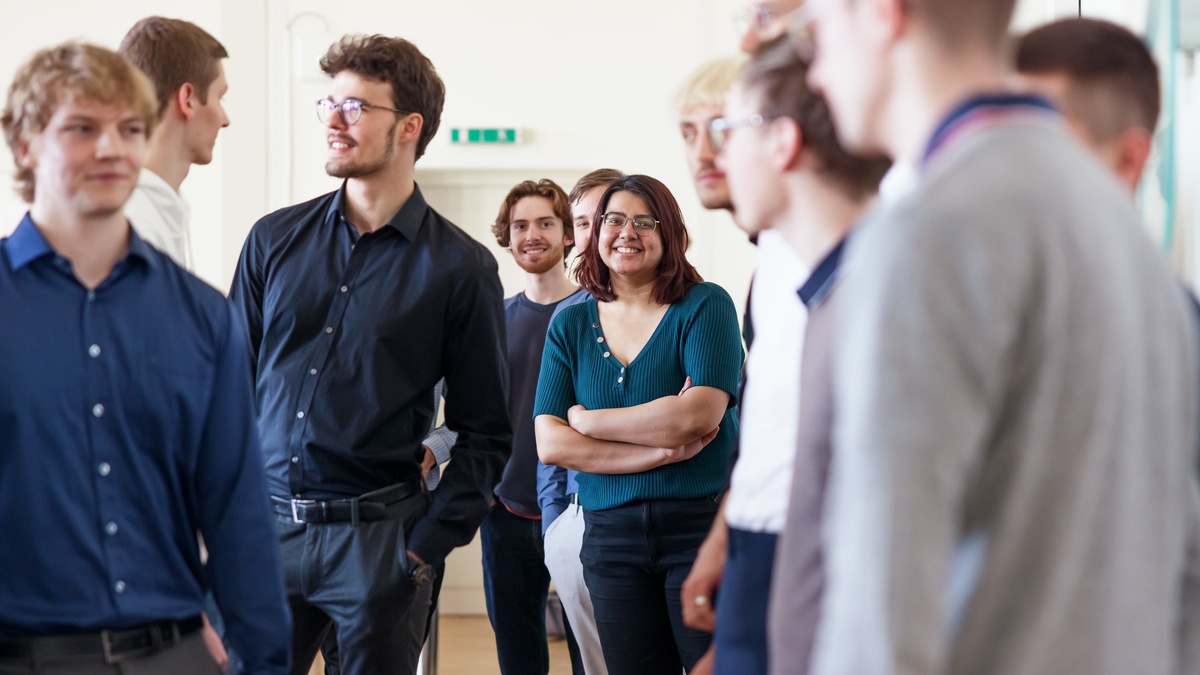 © Falk Lange vom SMWK
© Falk Lange vom SMWK
February 26, 2024
TU Dresden Sends SECAI Scholarship Holders off to Taiwan as Part of the Semicinductor Talent Incubation Program
A little less than six months after the signing of the Saxon-Taiwanese cooperation agreement, the first students are embarking on a six-month study visit to Taiwan as part of the innovative Semiconductor Talent Incubation Program (STIPT). The State of Saxony, TU Dresden and the semiconductor company TSMC are working closely together on STIPT to prepare STEM students as specialists for ambitious tasks in the semiconductor industry. More than 120 students applied for the study visit to Taiwan; 30 of them were selected for the first cohort - including SECAI scholarship holders Anurima Mallick and Shradha Sandesh Komatwar.
By sending Anurima Mallick to Taiwan, TU Dresden is sending a very experienced student. During her Bachelor's degree in Electronics and Communication Engineering at the Heritage Institute of Technology in Kolkata (HITK), India, she was already involved in the Institute of Electrical and Electronics Engineers (IEEE), an educational centre that creates educational and research experiences in the field of electronic devices and circuits through collaborative cooperation. Under the guidance of her professors, she was introduced to research on semiconductors and nanoelectronics, so that even as a young student she was actively involved in projects on heterostructures (the interface between two different semiconductor materials) and memory blocks of TCAM and SRAM. She used her skills to simulate modern semiconductor components using the SILVACO TCAD software.

STIPT candidate Anurima Mallick (center)
Her unquestionable passion for microelectronics and semiconductor technology is what significantly influenced her decision to move from India to Dresden: "I was well aware of Germany's revolutionary developments in the field of electronics and of course the well-established education system. TU Dresden, embedded in the 'Silicon Saxony', was undoubtedly my first choice as I want to be part of the global advancements in semiconductor technology." She is now completing her Master's degree in Nanoelectronic Systems and, as a participant in the STIPT programme, is gaining both theoretical and practical insights into the manufacture of semiconductors - in one of the world's leading factories in this field.
Shradha Sandesh Komatwar also graduated in Electronics and Communication Engineering in India and decided to move to Dresden after completing her Bachelor's degree at the B.M.S. Institute of Technology and Management in Bangalore. "I chose TU Dresden because it fits perfectly with my academic ambitions. With its renowned faculty, innovative research initiatives and vibrant academic environment, TU Dresden offers me incomparable opportunities to deepen my knowledge in my field of study," says Shradha. As a practice-oriented graduate, she gained insights into research at the VSSC – Indian Space Research Organisation and is thus well prepared to work with industry partners.
The STIPT programme also enables candidates to network globally and gain important insights into the research of international partners. "Participating in interdisciplinary seminars and workshops will familiarise me with the latest advances and research trends in the field, while collaborating with international colleagues offers a wide range of perspectives and approaches," emphasises Shradha.
In March, the four-month academic part of the study visit starts at the National Taiwan University (NTU), the programme's partner university in Taipei. The students then undergo practical training at TSMC's Newcomer Training Centre and at a factory in Taichung. During the study visit, all participants are in regular contact with the Saxon Science Liaison Office in Taipei to ensure that their stay in Taiwan runs smoothly and that they receive continuous support. In addition to the opportunity to gain in-depth insights into the manufacture of semiconductors, the STIPT programme also opens up promising prospects for participants in the semiconductor industry in Silicon Saxony. "I recently learnt that TSMC will open a factory here in Dresden by 2027. This will undoubtedly create many new opportunities for both graduates and skilled workers. Germany's advanced scientific environment combined with Taiwan's chip manufacturing technology will definitely make the greatest progress in the field of nanoelectronics and semiconductors," Anurima shares.
SECAI wishes its two promising scholarship holders an eventful and instructive time in Taiwan.
[Excerpts from TU Dresden press release; TUD Rector Prof. Ursula Staudinger and Minister of Science Sebastian Gemkow send off first students to Taiwan as part of the Semiconductor Talent Incubation Program]
